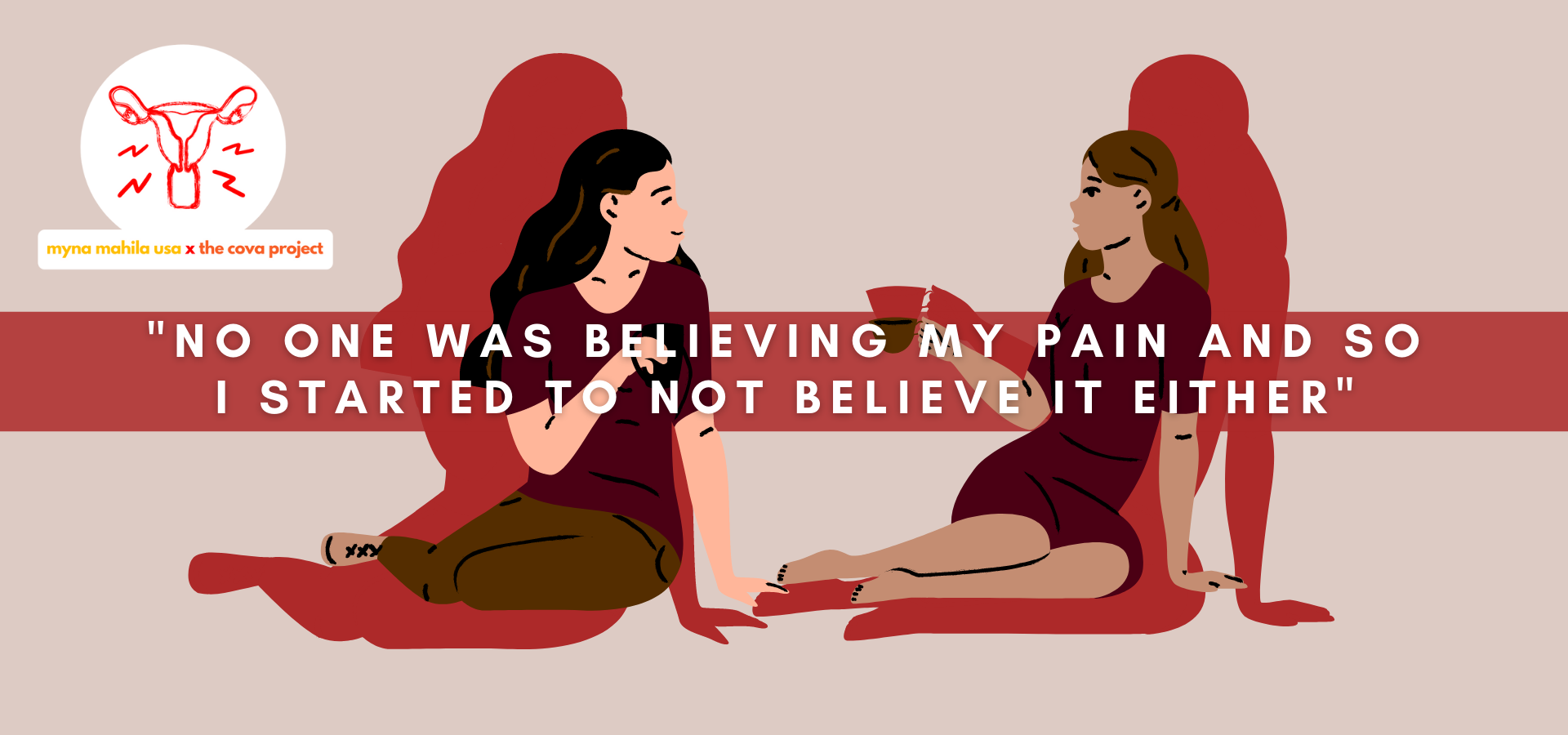Endo The Line: No One Was Believing My Pain and so I Started To Not Believe It Either
Painful periods are not normal! At The Cova Project we want to raise awareness for this issue that affects 84.1 per cent of menstruators.
I sat down to talk to Chloe Danvers, Adelaide born lawyer and passionate women’s rights activist to discuss her journey with period pain.
Tayla Badings: Tell me a little bit about your journey with your period?
Chloe Danvers: I got mine when I was 11 years old, which was super scary because I was the first one out of all my friends to get it. From about 11 to 14, I had irregular periods but with little to no pain. This changed at 14.
One day on work experience with school, I got intense pains in my stomach and ended up fainting. This sort of pain occurred every time I got my period and only intensified. There would be times where I couldn't walk, I couldn't remember hours at a time (my doctor eventually said these were mini seizures) and I would often faint from the pain. I went to the doctor after about six months into this pain cycle and was told this was a normal response to periods. I was put on a strong pill and told to go home and deal with it.
Initially I was able to skip my periods. This was okay for about six months. Then my periods started breaking through when I would try and skip them. I kept on going to different doctors to ask what was happening. No one took me seriously and I felt like a drama queen.
Finally, after about two years, I went to see an old male gyno. He said that it wasn't anything to be concerned by, but I should get a Mirena. Before giving me one he conducted a pelvic exam. I was 16, and it was a horrible experience. The pain was horrendous during the whole exam and I was in tears the whole time, but I was too embarrassed to say anything.
A month later I got the Mirena inserted and things were looking up. Until about 19 when I started to get pains again. I finally went to this amazing female GP who diagnosed me with endometriosis and chronic pain from years of not having the right medication. Since then, I have had two surgeries to help the pain and started pelvic floor physical therapy.
TB: That sounds incredibly difficult. How did it make you feel having all those doctors disbelieve your pain?
CD: During those years when I didn't have a diagnosis for endo, I felt like a hypochondriac. No one was believing my pain and so I started to not believe it. This sent me into a deep depression. I saw a therapist for three years trying to understand why I was "making up this pain".
It was awful not feeling believed, being belittled by male doctors, saying "as a woman this is what you have to deal with", "sometimes your mind makes up pain" and "someone your age doesn't have endo". I also had to take time off work when I would get a period and was embarrassed to explain why.
TB: What’s your relationship with your menstrual cycle now?
CD: I haven’t had a period now for five years because of my Mirena so I sometimes feel completely removed from the idea of a period. It’s an unusual feeling and sometimes makes me feel weak for not being able to deal with it or less of a woman. However, I have done a lot of research into endo and understanding the pain associated with it. I am feeling more in control of my period - now being able to cope with it.
TB: How has your period pain affected your life and how do you cope with it?
CD: As I have stated above, I have suffered bad to chronic period pain. It affects my relationships (sex can hurt and be uncomfortable because of endo), my work (having to take time off and being embarrassed to explain why) and it affects my mental wellbeing. It’s hard being in pain all the time and knowing why.
You think if you know why then the pain should stop - like there would be some cure. But that is not the case with endo. I cope by keeping updated on the newest research and actively doing anything I can to make the pain less. I also have friends in similar circumstances and being able to share my feelings and them relating makes it not feel so alienating.
TB: Lastly, what advice would you give someone else going through what you’ve been through?
CD: It sucks and I’m sorry you are going through this but there is an amazing community of people suffering from endo. Reach out to them as they will help you get through it. Find a doctor that makes you feel comfortable and see them regularly.
Understand all side effects including painful sex and don’t keep them to yourself. Communicate with your partner - it is not embarrassing and if someone makes you feel like it’s your fault - they are not the right person for you to be with. You are not a fraud for not being able to deal with a period and it doesn’t make you less of a woman. In fact, you are a warrior for living with it and taking it in your stride.
Over the next three weeks The Cova Project is part of the Period Pain Cam-Pain in partnership with Myna Mahilas USA and Chalice Foundation to learn about the ins and outs of period pain and what you can do to manage it while feeling supported. We want to open conversation around period pain, normalize dialogue about menstrual disorders and provide actionable solutions for those battling these issues.

